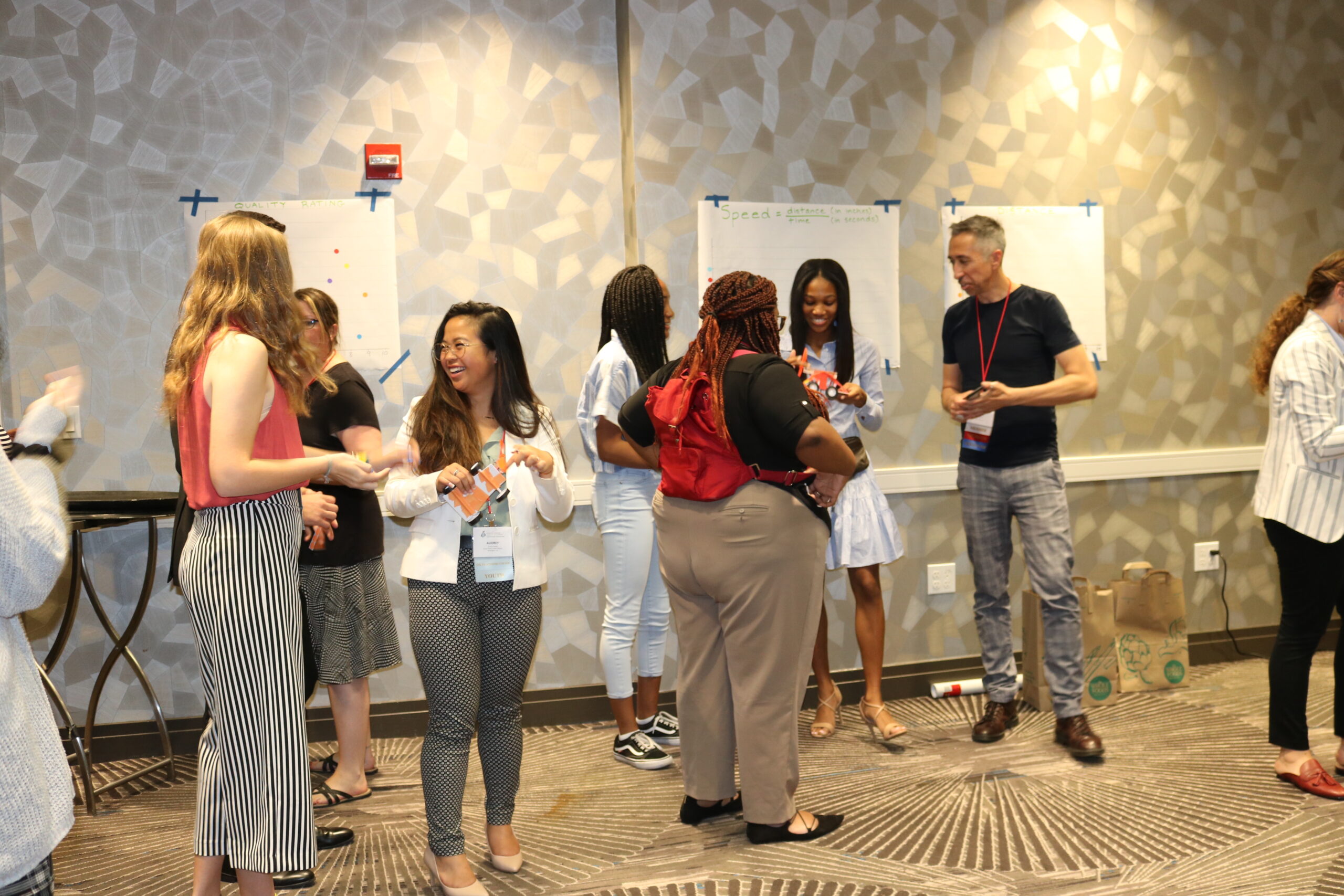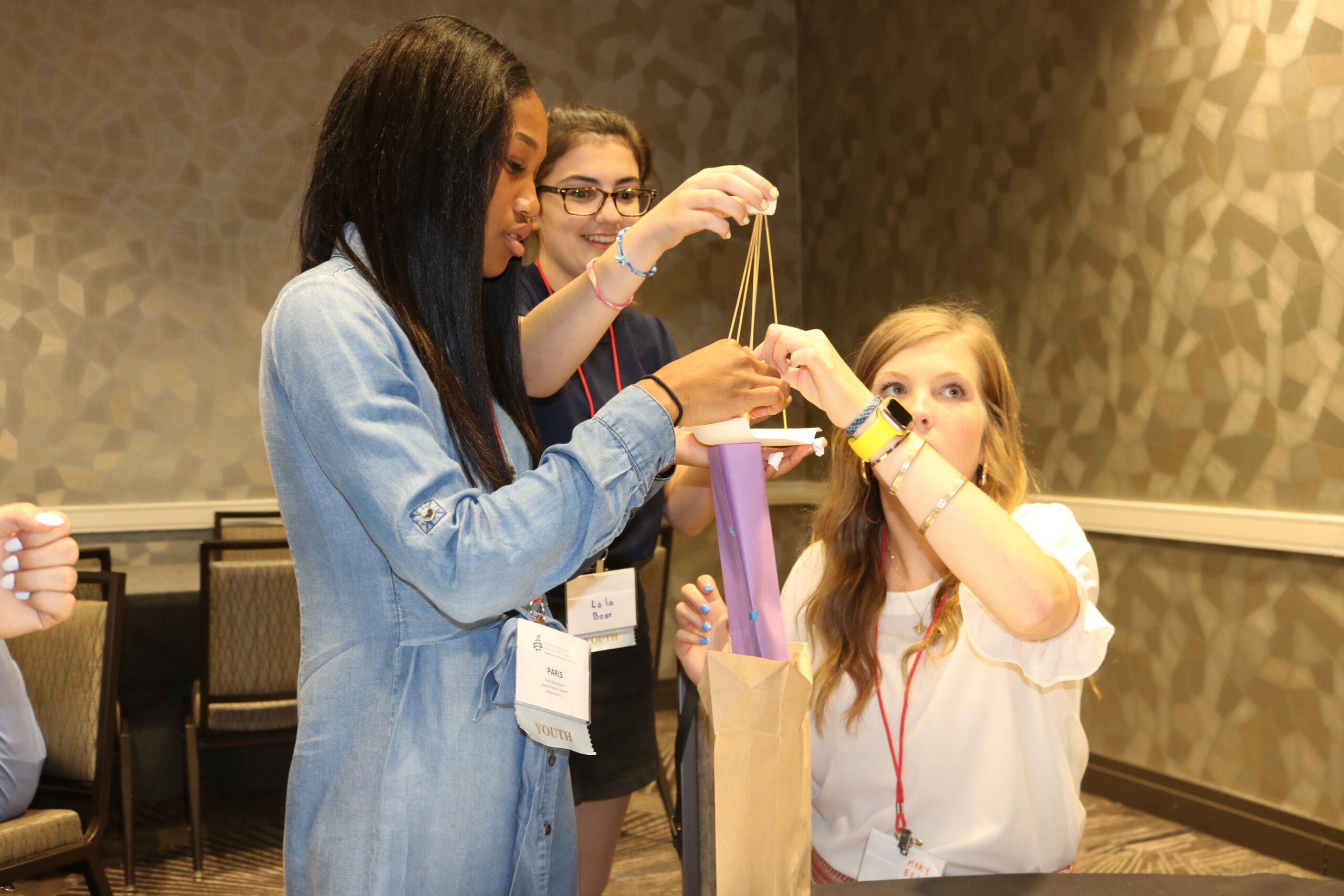





Youth are the most important actors in their health care. Great health centers (throughout this section, “health centers” refers to both school-based health centers (SBHCs) and community health centers) recognize the value of youth participation in decision-making processes and engage youth in various aspects of clinical operations.
Youth development is a process and practice that meets the physical and social needs of young people by defining their individual goals and preparing them to achieve their full potential.1 An integral part of youth development is youth engagement, which identifies youths’ rights to participate in decisions that influence them and recognizes the skills and strengths they bring to the table. It infuses youth as valued stakeholders in creating effective and inclusive policies, programs, and environments.
Youth engagement can benefit health centers, their mission, and young people. Meaningful youth engagement considers youth as equal partners with adults (throughout this document, “adult” refers to the range of supportive roles when working with youth) in the decision-making process. Health centers that establish partnerships with youth can help effectively engage the broader youth population and ensure opportunities for positive youth outcomes.
Youth engagement is a basic building blocks for health centers. When health center staff acknowledge youth perspectives, they exhibit a model health care system that values collective input, patient rights, and the holistic success of children and adolescents. Some examples of how health center staff can engage youth include:
These assessments are vital for health centers to gauge the pressing health concerns of a school or surrounding community. Youth are key informants who can provide insight into health conditions of their environment. Young people can assist with survey development and community data collection with peer-to-peer surveys and dissemination of their findings.
Youth can tell you which services they most often seek, suggest new service offerings, and advise on how such services can best be delivered. Additionally, youth can speak to the level of cultural respectfulness within the health center and recommend practices that would facilitate more meaningful patient-provider interaction.
Engaged young people are passionate clients who can serve as conduits between the health center and new patients. Youth are a key resource in promoting a positive image of health centers for their peers—an image that emphasizes safety, friendliness, and trust.
With thorough preparation and culturally appropriate and medically accurate health curricula from adult coordinators and allies, young people can be trained to educate students and other youth on a variety of health topics and the resources available to them. They can also assist in conflict mediation and promote positive relationships.
Youth engagement is a partnership that considers the mission and needs of an organization and prioritizes the total wellness of young people. Collaborative partnerships between adults and youth cultivate self-efficacy and skills that youth can carry into adulthood. Youth engagement equips young people with practical skills, such as meeting facilitation, public speaking, time management, data collection, and teamwork ethic. A fundamental outcome of youth engagement is agency, which encourages youth to be assertive as health center clients, students, and leaders in their communities.
When a health center engages youth, it can motivate them to make healthier decisions and practice healthier behaviors. In providing health information and guidance, youth become more aware of the consequences of risky and unhealthy behaviors, the social determinants of health, and the health disparities in their communities. Youth also learn more about healthcare systems the importance of preventive care, and how to translate information and awareness into actions that improve lives.
Youth engagement can and should be a fun experience for adults and young people. Affirmative youth-centered programs offer young leaders the chance to make friends and thrive in a safe environment. Once given the opportunity to express their full potential, youth will have the energy to arouse support for school and community health.